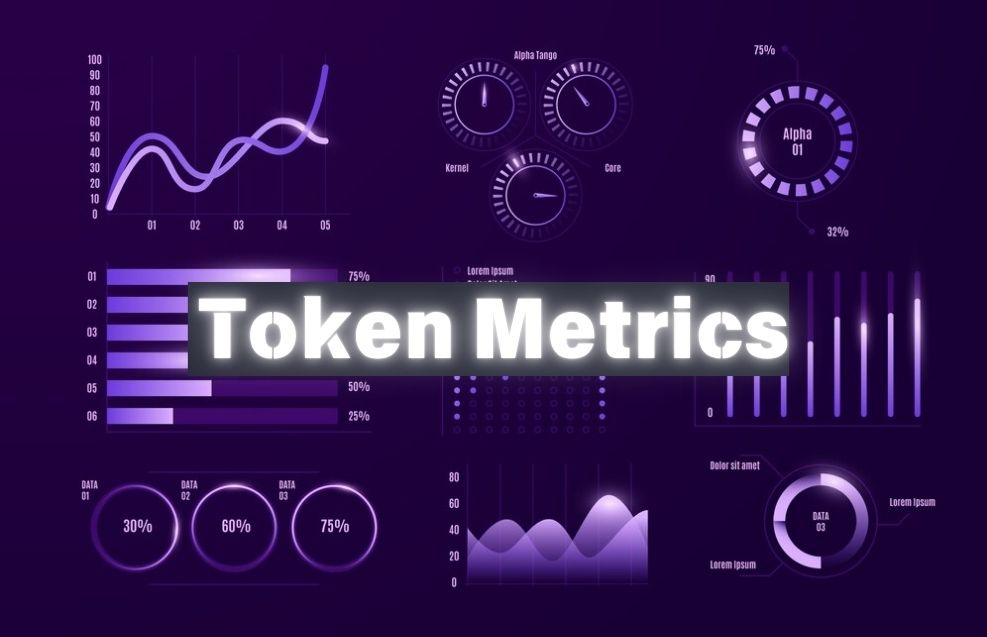Token metrics have emerged as a buzzword in marketing, reshaping the way businesses approach strategy and analytics. But what exactly are token metrics, and how can they drive impactful results for your marketing campaigns? This blog dives deep into the concept of this metrics, their significance in the marketing domain, and how to leverage them for sustained success.
Understanding Token Metrics in Marketing
At its core, token metrics refer to measurable data points associated with tokens—whether they’re digital assets, cryptocurrency tokens, or unique identifiers within a system. In marketing, this metrics can encompass a variety of indicators such as user engagement, transaction frequency, conversion rates, and token circulation.
The increasing integration of blockchain technology and digital assets into marketing has made the metrics a critical aspect of performance measurement. By analyzing the metrics, marketers can gain insights into customer behavior, campaign effectiveness, and long-term brand loyalty.
The Role of Token Metrics in Digital Marketing
Token metrics offer a unique advantage for marketers by bridging traditional analytics with the decentralized ecosystem. Here are some key areas where this metrics play a pivotal role:
- Customer Engagement Tracking: Token metrics help track how customers interact with digital tokens. For example, in a loyalty program powered by blockchain, metrics like token redemption rate and transfer frequency provide a clear picture of customer engagement.
- Campaign Performance Analysis: Token metrics offer granular insights into marketing campaigns. By analyzing metrics such as token distribution and audience reach, marketers can assess the impact of their campaigns and optimize them in real-time.
- Predictive Analytics: By analyzing historical token metrics, businesses can predict future trends. This predictive power enables marketers to make data-driven decisions, enhancing ROI and reducing wastage.
- Building Community Trust: Token metrics are transparent and immutable when derived from blockchain systems. This transparency fosters trust and credibility within the community, enhancing the effectiveness of marketing efforts.
Key Token Metrics Every Marketer Should Track
For businesses venturing into token-based marketing, identifying the right token metrics to track is crucial. Here are the top metrics that can provide valuable insights:
- Transaction Volume: Measures the total number of transactions involving the token. High transaction volumes indicate active user engagement.
- Token Retention Rate: Tracks how long users hold onto tokens, reflecting their perceived value and utility.
- Conversion Rates: Evaluates how effectively token-based campaigns lead to desired outcomes, such as sign-ups, purchases, or referrals.
- Active Users: Analyzes the number of unique users engaging with tokens over a specific period. This metric helps assess the reach and adoption of your campaign.
- Market Capitalization (if applicable): For projects using cryptocurrency tokens, market capitalization serves as a broader indicator of the token’s value and brand strength.
- Token Circulation: Examines how frequently tokens are exchanged or transferred, highlighting their utility within the ecosystem.
How to Leverage Token Metrics for Marketing Success
To effectively utilize this metrics, marketers need to follow a structured approach:
- Set Clear Objectives: Define what you aim to achieve with your token-based campaigns. Are you driving customer loyalty, increasing brand awareness, or boosting sales? Your objectives will determine the metrics you prioritize.
- Choose the Right Tools: Utilize tools and platforms designed to analyze the metrics. Many blockchain analytics platforms provide in-depth insights tailored for marketers.
- Segment Your Audience: Token metrics allow for precise audience segmentation based on engagement levels, transaction patterns, and preferences. Use this data to create personalized marketing strategies.
- Experiment and Iterate: Test different approaches and monitor the metrics to identify what works best. Use these insights to refine your campaigns and achieve better results.
- Integrate with Other Analytics: Combine this metrics with traditional marketing KPIs such as click-through rates, customer lifetime value, and social media analytics for a holistic view of performance.
Real-World Applications of Token Metrics in Marketing
Several industries are already leveraging the metrics to revolutionize their marketing strategies. Here are some examples:
- Loyalty Programs: Brands are using blockchain-based tokens as part of their loyalty programs. This metrics help track redemption rates, engagement levels, and overall program effectiveness.
- Event Marketing: Event organizers use the metrics to gauge attendee participation, ticket sales, and post-event engagement. Tokenized tickets offer an added layer of data for analysis.
- Influencer Marketing: Influencers can issue their own tokens, allowing followers to support them directly. This metrics provide insights into fan engagement and campaign ROI.
- E-commerce: Online retailers integrate tokens as part of their rewards or referral systems. This metrics help measure customer acquisition, retention, and spending behavior.
Challenges in Using Token Metrics
While this metrics offer immense potential, they come with their share of challenges:
- Complexity: Understanding and interpreting the metrics requires a certain level of technical expertise, which may be a barrier for some marketers.
- Data Privacy: While blockchain is transparent, it’s essential to ensure compliance with data privacy regulations when collecting and analyzing the metrics.
- Integration Issues: Integrating this metrics with existing marketing tools can be challenging, especially for businesses unfamiliar with blockchain technology.
- Scalability: As campaigns grow, the volume of the metrics can become overwhelming. Proper tools and strategies are essential to manage and analyze large datasets effectively.
Future Trends in Token Metrics for Marketing
The evolution of this metrics is closely tied to advancements in blockchain technology and digital marketing. Here are some trends to watch:
- AI-Powered Analytics: Artificial intelligence will play a significant role in analyzing the metrics, providing deeper insights and automating decision-making.
- Tokenization of Physical Assets: As more physical assets become tokenized, marketers will have new opportunities to engage customers and analyze the metrics.
- Decentralized Marketing Platforms: These platforms will offer marketers direct access to these metrics, reducing reliance on intermediaries and improving transparency.
- Integration with Metaverse and Web3: This metrics will become integral to marketing strategies within the metaverse and Web3 ecosystems, driving engagement and monetization opportunities.
Conclusion
Token metrics are not just a trend; they are a transformative tool for modern marketing. By understanding and leveraging this metrics, businesses can unlock new levels of customer engagement, campaign effectiveness, and brand loyalty. As the digital landscape continues to evolve, this metrics will remain at the forefront of data-driven marketing strategies, offering unprecedented opportunities for growth and innovation.
Start exploring token metrics today and see how they can revolutionize your marketing efforts.

